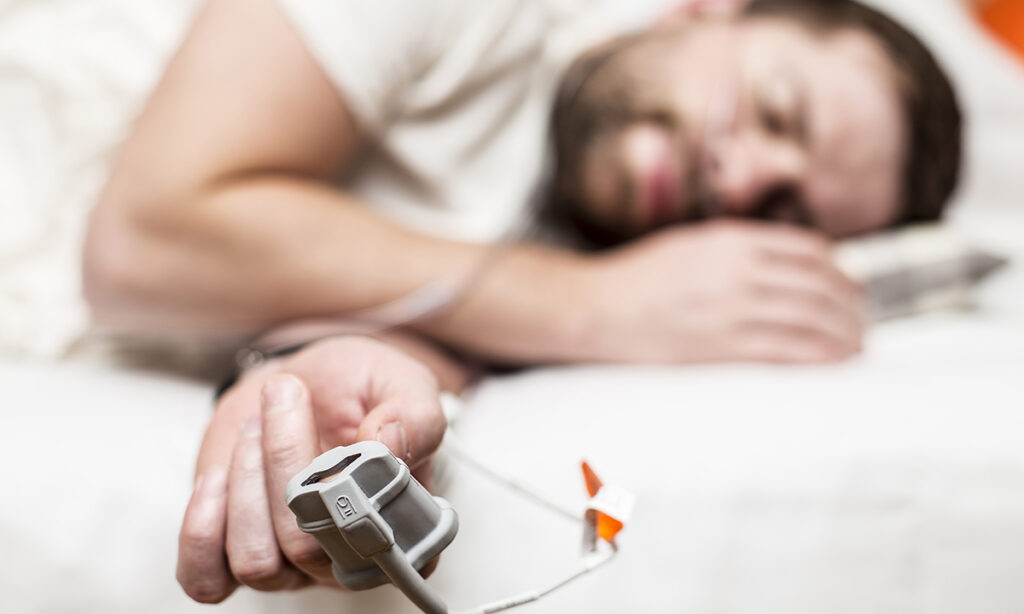Sleep apnea is a serious condition that affects many individuals across Australia, including those residing in Adelaide. Characterised by repeated interruptions in breathing during sleep, this disorder can lead to various health complications if left untreated. Early detection is crucial for effective management, and fortunately, there are affordable testing options available for those seeking answers. This article explores the importance of sleep apnea testing, the types of tests available in Adelaide, and how to access these services without breaking the bank.
The Importance of Early Detection
Understanding the significance of early detection in sleep apnea cannot be overstated. The condition often goes unnoticed, as many individuals are unaware of their disrupted sleep patterns. Symptoms may include loud snoring, gasping for air during sleep, excessive daytime fatigue, and difficulty concentrating. Without proper diagnosis and treatment, sleep apnea can lead to severe health issues such as cardiovascular problems, diabetes, and even stroke. Early awareness of these symptoms is crucial, as it can prompt individuals to seek medical advice sooner rather than later, potentially averting the cascade of complications that can arise from prolonged untreated sleep apnea.
Various testing options are available for those suspecting they may have sleep apnea. Understanding the sleep apnea test Adelaide options can help individuals make informed decisions about their health. The two primary types of tests are home sleep tests and in-lab polysomnography.
Moreover, the societal implications of sleep apnea are significant. With a considerable portion of the population affected, the economic burden on healthcare systems is substantial. Increased healthcare costs arise from emergency room visits, hospitalisations, and the management of chronic conditions linked to sleep apnea. By prioritising early detection, not only can individuals safeguard their health, but they can also contribute to a reduction in the overall strain on healthcare resources, promoting a healthier society.
Health Risks Associated with Untreated Sleep Apnea
When sleep apnea is left unaddressed, the risks can escalate significantly. Chronic sleep deprivation can weaken the immune system, making individuals more susceptible to illnesses. Moreover, the increased strain on the cardiovascular system can elevate blood pressure and contribute to heart disease. Mental health can also be impacted, with studies linking untreated sleep apnea to anxiety and depression. The interplay between sleep and mental well-being is complex; disrupted sleep patterns can exacerbate existing mental health conditions, creating a vicious cycle that is difficult to break.
Additionally, untreated sleep apnea can lead to complications in other areas of health, including metabolic disorders. Research has shown a correlation between sleep apnea and insulin resistance, which can increase the risk of developing type 2 diabetes. This relationship highlights the importance of a holistic approach to health, where sleep quality is considered a vital component in the prevention and management of chronic diseases. Understanding these interconnected risks can empower individuals to take proactive steps towards their health, including lifestyle changes and seeking medical advice.

Quality of Life Improvements
Early detection and treatment of sleep apnea can lead to substantial improvements in overall quality of life. Individuals often report better sleep, increased energy levels, and enhanced cognitive function after receiving appropriate care. Furthermore, addressing sleep apnea can improve relationships, as partners often experience better sleep when the condition is managed effectively. The ripple effect of improved sleep can extend into various aspects of daily life, including work performance and social interactions, fostering a more fulfilling and engaged lifestyle.
In addition to these personal benefits, the psychological impact of receiving treatment can be profound. Many individuals experience a renewed sense of control over their health and well-being, which can boost self-esteem and motivation. The journey towards better sleep often encourages individuals to adopt healthier habits, such as regular exercise and improved nutrition, which can further enhance their overall health. As such, the path to early detection not only addresses the immediate concerns of sleep apnea but also opens the door to a healthier and more vibrant life.
Read about sleep study on: Home Sleep Study in Adelaide A Convenient Solution for Better Sleep
Types of Sleep Apnea Tests Available in Adelaide
Home Sleep Tests
Home sleep tests have become increasingly popular due to their convenience and affordability. These tests typically involve using a portable monitoring device that records breathing patterns, oxygen levels, and heart rate while the patient sleeps in their own bed. Home sleep tests are generally less expensive than in-lab options and can be a suitable choice for individuals with a high likelihood of having sleep apnea.
However, it is essential to note that home sleep tests may not be suitable for everyone. Individuals with complex medical histories or those who may have other sleep disorders may require a more comprehensive evaluation through in-lab testing. Learn more about disorders at https://psychology.asu.edu/clinic/evaluations
In-Lab Polysomnography
In-lab polysomnography is the gold standard for diagnosing sleep apnea. This comprehensive test is conducted in a sleep clinic, where patients are monitored overnight. During the test, various physiological parameters are recorded, including brain activity, eye movements, heart rate, and respiratory patterns. This detailed data allows healthcare professionals to accurately diagnose the severity of sleep apnea and recommend appropriate treatment options.
While in-lab testing can be more expensive and less convenient than home sleep tests, it provides a thorough assessment that can be crucial for individuals with complex sleep issues. Patients can also benefit from the immediate support of healthcare professionals during the testing process.
Accessing Affordable Sleep Apnea Testing in Adelaide
Affordability is a significant concern for many individuals seeking sleep apnea testing. Fortunately, Adelaide offers several options that cater to various budgets, ensuring that everyone has access to necessary health services.
Private Health Insurance
For those with private health insurance, many policies cover sleep studies, including both home tests and in-lab polysomnography. It is advisable to check with your provider to understand the level of coverage available and any out-of-pocket expenses that may apply. This can significantly reduce the financial burden associated with sleep apnea testing.
Public Health Services
Adelaide residents can also access sleep apnea testing through public health services. The South Australian government provides various healthcare services, including sleep studies, often at a reduced cost or even free of charge for eligible individuals. Patients may need a referral from their general practitioner to access these services, but this route can be a viable option for those without private insurance.
Community Health Initiatives
Several community health initiatives in Adelaide aim to raise awareness about sleep disorders and provide affordable testing options. These initiatives may offer subsidised testing or screening events, making it easier for individuals to get the help they need. Keeping an eye on local health bulletins or community centres can provide information on upcoming events and services available in the area.
What to Expect During a Sleep Apnea Test
Understanding what to expect during a sleep apnea test can help alleviate any anxiety associated with the process. Whether opting for a home test or in-lab polysomnography, being informed can lead to a smoother experience.
Preparing for the Test
Preparation for a sleep apnea test may vary depending on the type of test chosen. For home sleep tests, patients are typically advised to avoid alcohol and caffeine on the night before the test, as these substances can interfere with sleep patterns. It is also essential to follow any specific instructions provided by the healthcare provider regarding the use of the monitoring device. To read more about alcohol click here.
For in-lab polysomnography, patients may be asked to arrive at the sleep clinic in the evening, where they will be guided through the process. It is advisable to bring comfortable sleepwear and any personal items that may help create a familiar sleeping environment.
The Testing Process
During a home sleep test, patients will set up the monitoring device according to the provided instructions. The device will typically record data throughout the night, which will later be analysed by a healthcare professional. In contrast, during in-lab polysomnography, patients will be connected to various sensors that monitor their sleep patterns in real-time. This process may feel unusual initially, but sleep technicians will be available to assist and ensure comfort throughout the night.
Interpreting the Results
Once the sleep test is complete, the results will be analysed and discussed with the patient. Understanding these results is crucial for determining the appropriate course of action.
Understanding the Diagnosis
The results of a sleep apnea test will indicate whether the patient has sleep apnea and, if so, the severity of the condition. The diagnosis is typically based on the number of apnoeas (pauses in breathing) experienced per hour of sleep, known as the Apnoea-Hypopnoea Index (AHI). A higher AHI score indicates more severe sleep apnea.
Next Steps After Diagnosis
Following a diagnosis, healthcare professionals will discuss treatment options tailored to the individual’s needs. These may include lifestyle changes, the use of continuous positive airway pressure (CPAP) therapy, or even surgical interventions in more severe cases. The goal is to improve sleep quality and reduce health risks associated with the condition.
Conclusion
Sleep apnea is a prevalent condition that can have significant health implications if left untreated. Early detection through accessible and affordable testing options in Adelaide is crucial for effective management. With various testing methods available, individuals can choose the option that best suits their needs and budget. By prioritising sleep health, residents of Adelaide can enhance their quality of life and reduce the risks associated with sleep apnea. Taking the first step towards better sleep can lead to a healthier, more fulfilling life.


